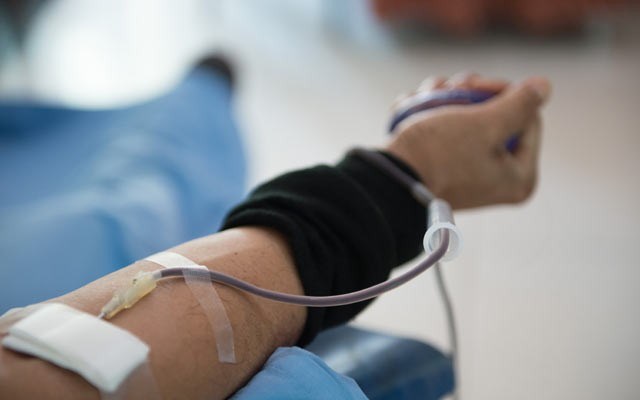It's been a little while since I donated blood.
What's worse is I haven't even thought about it much since moving to B.C. from Winnipeg in 2014.
I was the Canadian Blood Services (CBS) ambassador to my high school in my Grade 12 year and in the months before I left the prairies for rockier pastures, was giving platelets every couple of weeks instead of whole blood every 56 days. A friend and I would book appointments at the same time on a Saturday, when the canteen had bagels in addition to the regular cookies and juice, and we'd make a day of it.
When I lived in Fort Frances, Ont., a mobile clinic occasionally set up at the local high school and I would go there when the wagon was passing through.
When I first moved here, I was on the lookout for mobile clinics coming to the Sea to Sky corridor, but heard nothing. I got busy with other things and hadn't really thought too much about it until hearing on the radio late last month that there was an urgent call for blood. Though it wasn't my blood type that was most desperately needed, I still felt some pangs of guilt for doing nothing to help bolster the supply in recent years.
CBS director of donor relations for BC and Yukon David Patterson said even with the recent critical need for blood, there has been a general trend with hospitals requesting less blood than in previous years. Because of the trend, CBS is opting not to take its show on the road great distances from its production sites (in our case, on Oak Street in Vancouver) because, well, it's more expensive to go somewhere than to stay put. If you're getting, generally, adequate supplies with people coming to you, why would you feel the need to go in all directions to them?
"When we do mobiles, there's a lot of stuff that comes. There's trucks full of equipment beds and machinery. There's, of course, a van full of staff. We can do a better job of controlling our costs, obviously, if we can remove some of those clinics when we're able to," Patterson explained.
Sure enough, it's not just Whistler but Fort Frances — a good four to five hour drive from the nearest permanent clinic in Winnipeg — is no longer on the circuit, either.
Additionally, the less time that elapses between collection and arrival at the production centre, the better, Patterson explained. He said Prince George no longer hosts clinics because it was prone to airport closures and drivers would have to brave treacherous roads to get the cargo to its destination. With Highway 99 seeing its share of closures especially in winter, if travel time is roughly the same, a Lower Mainland site like Maple Ridge or Abbotsford is more desirable than Squamish.
Those looking to donate without crossing the Lions Gate Bridge can do so on Thursday, July 19 at the Gleneagles Golf Course Clubhouse in Horseshoe Bay. Patterson said as of June 30, well over a hundred spots still remained.
"What we're trying to do is make our more urban clinics bigger so we're collecting more units in a clinic in Burnaby or Langley. Instead of having six beds in that clinic for the day, we're trying to have eight beds in that same clinic," he said.
Anyone looking to donate must show ID, but beyond there, there are a number of other reasons why a person may not be able to donate. Just spit-balling here, perhaps given our resort's reputation for the extreme — in sports, drugs and sex — there wasn't enough risk-free blood to make it a worthwhile trip.
While Patterson noted demand may increase in coming years, necessitating a return to Sea to Sky communities, he said there are other ways for people to get involved. Aside from encouraging people living in urban areas to donate blood, Patterson said anyone could register for the OneMatch program, which connects potential stem cell donors to patients battling diseases like leukemia, aplastic anemia and inherited immune system and metabolic disorders. The test can be completed at home in about 20 minutes, Patterson said. Those aged 18 to 35, especially men, are encouraged to register.
"Stem-cell donors are selected based on their genetic matching with the patient. You may have someone in Whistler who's from the U.K. or from Australia or from Europe who can be a match for someone back there, or whose ancestry is from there," he said.
More information about Canadian Blood Services and OneMatch is online at www.blood.ca.
I pledge to get back into donating regularly at the Downtown Vancouver clinic, and will register for OneMatch. I'll also plan to post in the Hitching the Sea to Sky Facebook group well before I go, so if anyone wants to hop in and join, it would make for a more efficient trip.
Hopefully, we can go on bagel day.




